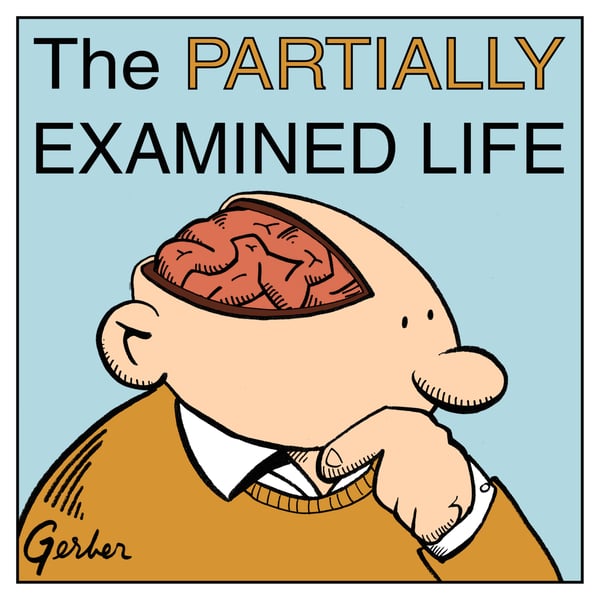PREMIUM-Ep. 274: Schelling on Self-Consciousness (Part Two)
The Partially Examined Life Philosophy Podcast
Mark Linsenmayer
4.6 • 2.3K Ratings
🗓️ 26 July 2021
⏱️ 9 minutes
🧾️ Download transcript
Summary
Concluding on Schelling’s System of Transcendental Idealism (1800), Parts 1 and 2.
What sort of self is created in the act of self-consciousness that according to Schelling grounds all knowledge? We further consider this primordial act.
To hear the full second part, you'll need to go sign up at partiallyexaminedlife.com/support.
Transcript
Click on a timestamp to play from that location
| 0:00.0 | This is the preview to episode 274 Part 2, Shelling on Self-Conscious, where we wrap up |
| 0:13.2 | our treatment of the System of Transcendental Idealism from 1800. |
| 0:16.7 | In the clip you're about to hear right near the beginning, we start off with the quote |
| 0:19.6 | that we had briefly discussed in Part 1 whereby, truths of logic are supposed to presuppose |
| 0:26.1 | objects in the world. |
| 0:27.5 | Check it out. |
| 0:31.2 | Well there's a point three here, a nice little quote. |
| 0:35.3 | Having thought A, I admittedly think of it as A, but how then do I come to think A in |
| 0:39.8 | the first place? |
| 0:40.8 | If it is a concept freely engendered, it gets no knowledge. |
| 0:43.7 | If it is one that arises with the feeling of necessity, it must have objective reality. |
| 0:47.8 | So that's just a call back to what I was wondering about of what makes something objective |
| 0:52.3 | and that has some relation to a concept freely engendered, however you want to take that. |
| 0:57.2 | I can't even say that would be purely subjective to have knowledge has to be again the identity |
| 1:01.6 | of the subjective with the objective, which impresses itself upon us with something of |
| 1:06.3 | necessity. |
| 1:07.3 | Yeah. |
| 1:08.3 | So just to maybe explain that for listeners, this is the idea that the humanium objection, |
| 1:15.0 | the thing that would make scientific knowledge impossible is that since things cause each other, |
| 1:22.1 | those alities predicated on this idea that it'll always happen and that one thing is actually |
| 1:28.2 | necessitating the other and that they're not just associated representations, something |
| 1:34.4 | like that, just ideas that happen to follow on each other. |
... |
Please login to see the full transcript.
Disclaimer: The podcast and artwork embedded on this page are from Mark Linsenmayer, and are the property of its owner and not affiliated with or endorsed by Tapesearch.
Generated transcripts are the property of Mark Linsenmayer and are distributed freely under the Fair Use doctrine. Transcripts generated by Tapesearch are not guaranteed to be accurate.
Copyright © Tapesearch 2025.

